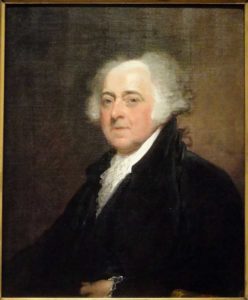 SEARCY, Ark. — Several displays featuring quotations from Scripture have been removed from a choir room at a public high school in Arkansas following a complaint from one of the nation’s most conspicuous professing atheist activist organizations.
SEARCY, Ark. — Several displays featuring quotations from Scripture have been removed from a choir room at a public high school in Arkansas following a complaint from one of the nation’s most conspicuous professing atheist activist organizations.
The Wisconsin-based Freedom From Religion Foundation (FFRF) sent a letter in November to the superintendent of the Searcy School District to assert that the signs, displayed by choir director Tina Niederbrach at Searcy High School, are violative of the U.S. Constitution.
According to reports, the signs included the verses, “Sing and make music from your heart to the Lord” (Ephesians 5:19); “Love binds us together in perfect harmony” (Colossians 3:14); and “As the deer pants for streams of water, so my soul pants for you, my God” (Psalm 42:1).
“The district violates the Constitution when it allows schools to display religious symbols or messages. Public schools may not advance, prefer, or promote religion,” the FFRF claimed in its correspondence.
“The display alienates those non-religious students, families, teachers and members of the public whose religious beliefs are inconsistent with the message being promoted by the school,” it asserted.
The atheist and agnostic group asked for the Bible-themed displays to be taken down.
“The district should remind its employees of their constitutional obligation to remain neutral toward religion while representing the district and ensure that its schools do not contain religious displays,” FFRF wrote. “Please have these posters removed from Ms. Niederbrach’s choir room.”
On Monday, FFRF advised in a press release that it had been notified in a letter from Superintendent Diane Barrett that the displays are no longer present in the Searcy High School Choir room.
“A music room should should not be a place of discord,” Co-President Annie Laurie Gaylor said in a statement. “We’re pleased that the school has taken action to ensure that student chorus members of minority faiths and no religion feel equally welcomed.”
However, as previously reported, while some state that God and government must remain separated, others note that the nation was founded by those who believed that America could not expect to be blessed if it failed to acknowledge and honor Almighty God.

On March 23, 1798—less than 12 years after the signing of the U.S. Constitution—John Adams, the second president of the United States called for a day of national repentance, prayer and fasting.
“[T]he safety and prosperity of nations ultimately and essentially depend on the protection and the blessing of Almighty God, and the national acknowledgment of this truth is not only an indispensable duty which the people owe to Him, but a duty whose natural influence is favorable to the promotion of that morality and piety without which social happiness cannot exist nor the blessings of a free government be enjoyed,” he wrote.
James Madison, the fourth president of the United States, similarly called for a national day of prayer on July 9, 1812.
“I do therefore recommend the third Thursday in August next as a convenient day to be set apart for the devout purposes of rendering the Sovereign of the universe and the Benefactor of mankind the public homage due to His holy attributes; of acknowledging the transgressions which might justly provoke the manifestations of His divine displeasure; of seeking His merciful forgiveness and His assistance in the great duties of repentance…”
The first textbook used in the American colonies even before the nation’s founding, “The New England Primer,” was largely focused on the Scriptures, and was stated to be popular in public and private schools alike until approximately the early 1900’s. It used mostly the King James Bible as reference, and spoke much about sin, salvation and proper behavior.
“Save me, O God, from evil all this day long, and let me love and serve Thee forever, for the sake of Jesus Christ, Thy Son,” it read.
Noah Webster’s famous “Blue Back Speller” also referenced Christianity, including God-centered statements in reading lessons such as “The preacher is to preach the gospel,” “Blasphemy is contemptuous treatment of God,” and “We do not like to see our own sins.” Webster, a schoolmaster, is known as the “father of American education” and strongly advocated teaching children the Scriptures. Many of the Founders’ children are stated to have learned to read from the primer.
Become a Christian News Network Supporter...


